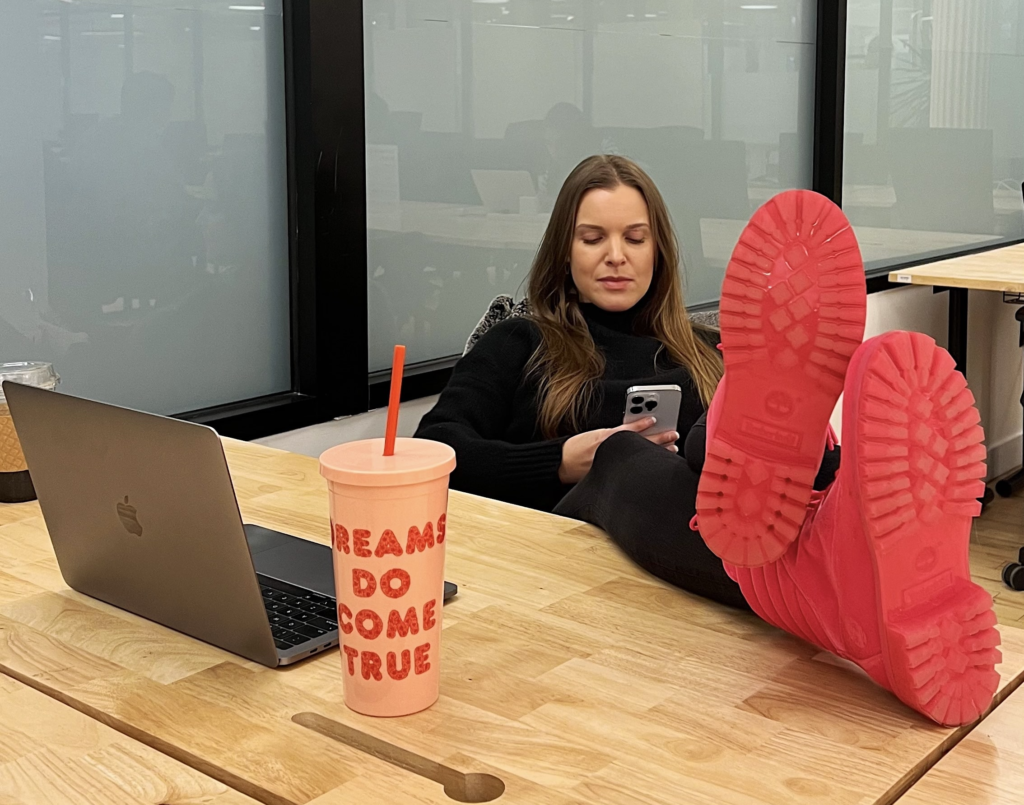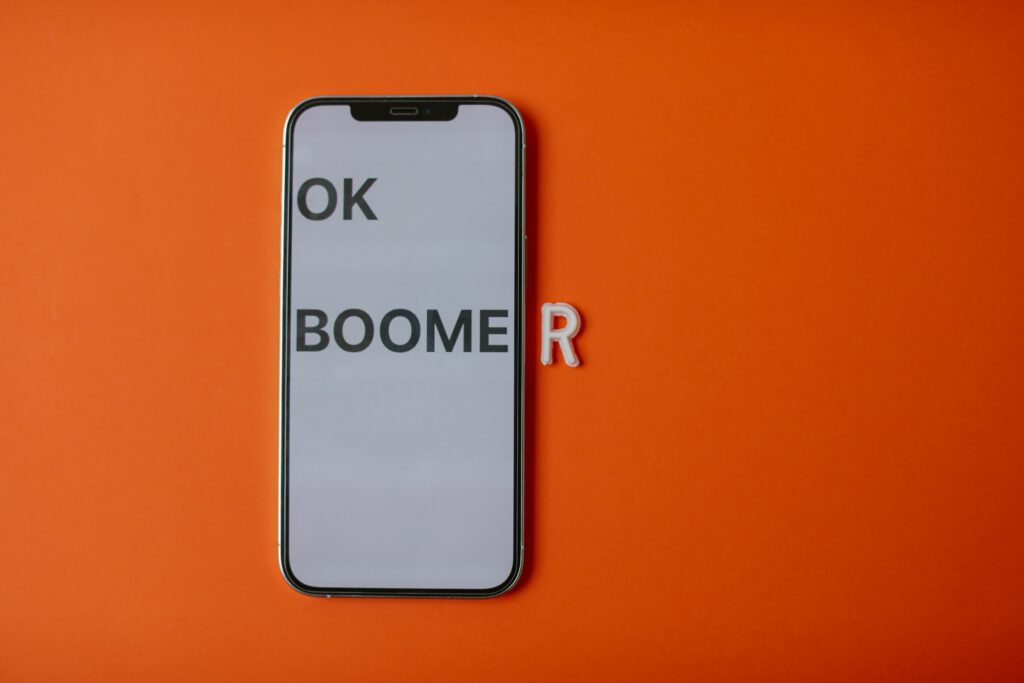Look, navigating the ins and outs of the workplace is challenging. We all want to succeed, but we’re not even sure what success means half the time — is it that next promotion, a salary bump, being your own boss, finding your passion? We’ve all been fed some version of each of these tropes over and over, but truthfully there’s no magic “right” answer here. Success is whatever we define it to be, and there’s no universal guidebook that applies to each of us.
I’ve personally experienced so many successes (and failures) in my own career and I’m still in my 30s. Does that make me a career change guru? Absolutely not. But I’d love to dedicate some time with this new project to discuss some of the things I’ve learned, observed, and experienced.

What will that look like? We’ll see! I want to focus on topics that you all will find most valuable, but we’re going to start with a few that have been top of mind for me lately.
First? Navigating the generational divide.

Every generation has opinions about how the one below it (or above it) is different — and likely inferior — from their own. But how these divides manifest themselves in the workplace is something I find particularly fascinating.
I personally fall solidly into the Millennial camp. In fact, I’m almost exactly at the center of the Millennial age range so I feel I can speak to our stereotypes with some semblance of authority — no generational cusps here. I remember making fun of my older Boomer colleagues early in my career for their absurd inability to understand the difference between a Word document and a PDF (let alone how to actually create one). And I remember the awe on an older colleague’s face when I demonstrated the proper way to execute an Index Match in Excel, saving them hours of busy work that they’d been doing manually for years.
But as I’ve grown in both my career and age, it’s the generation below mine that’s captivating more of my attention. Why? Because they’re the ones I’m managing.

Transitioning from an individual contributor to a manager is yet another topic that I’ll write on later, because there has been no other area of my career (or life) where the difference between the generations has been more stark. Just a few contrasts that come to mind off the top of my head:
- Let’s start with the obvious — Gen Z is insanely tech savvy
- I can pat myself on the back about my Excel skills as much as I want, but growing up with all this technology already at their fingertips has given the next generation a massive leg up when it comes to basic technological competency. And truthfully, this isn’t new. Every generation born into the throes of advancement is going to have an advantage over their older peers. But the particular developments of the last generation makes this common phenomenon feel much more stark this time around. The internet literally didn’t exist when I was born. If I wanted to stay connected to my best friend after school I had to beg my parents to pay for a second phone line so that we could stay on the phone with each other for HOURS each night while we read in silence, listened to music together, or talked about life (and we did, thx mom and dad for footing the bill for so many years). So while every generation experiences this type of technological progress differently, I contend that the experience of Gen Z is an order of magnitude more starkly different than anything we’ve seen before.
- Gen Z has no qualms about calling companies out for their hypocrisy
- The always-online generation has become insanely competent at in-depth research. They can follow a digital footprint better than the FBI, and everyone should take notice. On the one hand, I have major reservations about young people having such a permanent digital footprint themselves that they may be haunted by small missteps made when they were literal children (can we let children be young, please? A topic for a different time, I’m afraid). But Gen Z tracking down a corporation’s financial activity that is in direct contradiction to a performative marketing message that they spit out one day? No complaints there. Now, alongside this incredible detective skills should also come accountability to doing the actual research, not just skimming TikTok headlines…but I digress.
- Alongside their investigative skills has also come a deep desire to see companies take public stances on their values, both political and social
- Similar to their desire to track down an individual or company’s history, Gen Z wants a company to proudly declare their political and social views. I believe that the younger Millennial cohort laid the groundwork here, but Gen Z is significantly more vocal about it. And their tech savvy enables them to grab the megaphone and amplify their opinions much more loudly than we’ve been able to before they came around. They’re not afraid to call people out, and a literal army of keyboard warriors stands at the ready to take down anyone who dares defy the mob. This is where I sometimes fear we’re losing the understanding of nuance in the next generation, because anyone who has spent long enough in the professional world knows that the intersection of political, social, and professional issues are far from binary. Do I take issue with the next generation wanting to literally put their money where their mouths are and support companies whose beliefs support their own values? Not at all. But identifying those stances and what activities actually demonstrate whether or not a company is ethical is far more complex than an Instagram meme would like us to believe.
- So dedicated to understanding and embracing the humanity in the world around us, Gen Z sometimes has a tendency to project their morality onto a rather complicated system
- Corporations are, for better or for worse, made up of actual human beings — flawed, complex, and ever changing. Sometimes I wish we could focus a little more energy on the “ever changing” component and try to help those humans make productive transformations rather than embracing the Burn It All Down mentality that I fear has become all too common. There’s nothing wrong with a little healthy idealism, especially from a generation that is still getting its foothold in the professional world, but we need to go beyond applying to top Google (or ChatGPT, or TikTok search) response to every problem rather than taking the time to dig in and read about a topic in depth.
- I’ve personally seen this demonstrated a lot in the day-to-day conversations in the workplace. Sometimes I feel as though I’m sitting across the table from someone who did a quick Google (or ChatGPT, or TikTok search) and then simply applied the top response to an entire idea rather than taking the time to dig into the specifics of the scenario at hand. The interactions become almost robotic and frankly much more entitled than I even give my own generation (the supposed most entitled of them all*) credit for. It’s as if the individual across the table from them — their living, breathing manager, who they’ve likely grabbed drinks with, told about their lives and relationships — is nothing more than a vessel of the great corporate machine, devoid of any human emotions and unworthy of human consideration. What has led this generation, that in so many ways is the most empathetic one in our modern existence, to disregard the other humans in the office so easily?
Some of these differences are likely just inherent contrasts that come from experience or the different fundamental realities that stem from growing up during different times. But they’re real disparities that I’ve observed between my own generation and the one below it, and I’d love to delve into each one to discuss how we can understand — and capitalize — on those differences to achieve the best working relationships possible. No single generation is “better” than another, and each undoubtedly has major benefits that enable it to thrive in the workplace. What interests me is not to pit one generation against another, but instead to understand the intrinsic differences such that we can all operate as our best selves in our professional lives.
Look, we’re all individuals. No single person is going to perfectly encapsulate every stereotypical element of their generation and I have no desire to diminish your absolute uniqueness. What I’m interested in is how we can acknowledge the fundamental differences we embody simply by being born at different times, and leverage them to work together in more harmony. Who’s with me?
*A certain someone in my life took issue with this statement immediately upon reading this article. Rather than taking his advice and removing it, I invite him to write a guest post on who the actual most entitled generation is — he claims he comes with data and receipts, so we all look forward to your response. You know who you are 🙂
